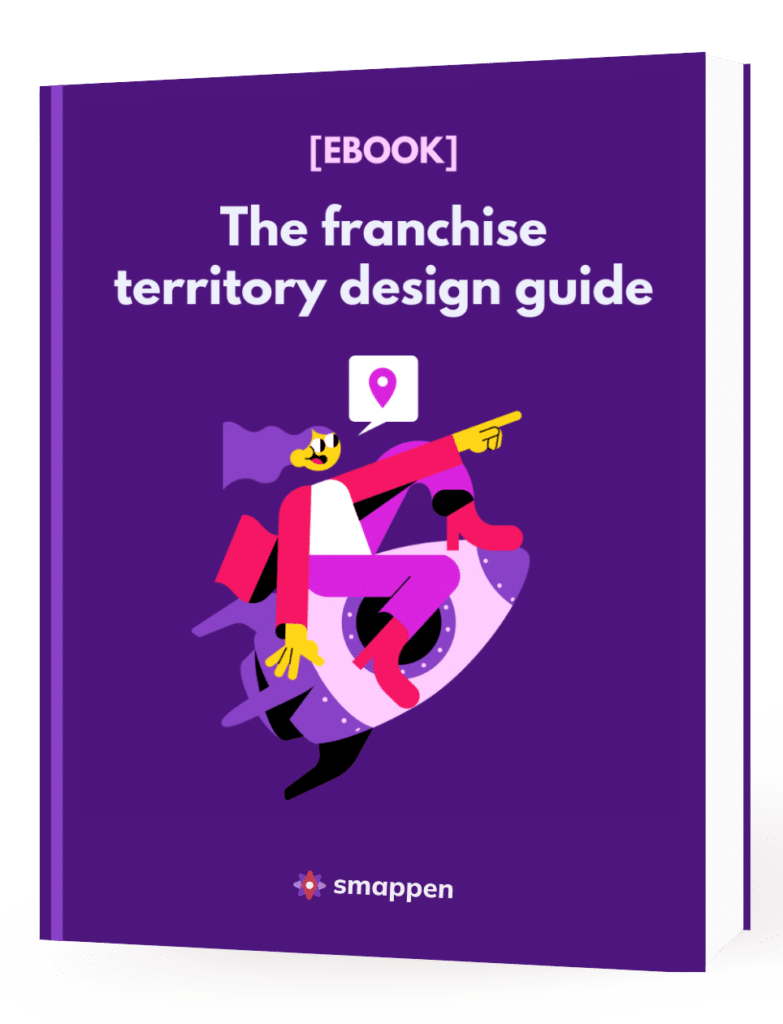There was a time when the billboard was king of advertising. Then digital advertising came around, allowing advertisers to deliver tiny billboards to customers through email, social media ads, Google, and other platforms. And yet, billboards and similar mediums that make up out-of-home advertising still have their place.
Here’s your guide to making these campaigns work.
What is OOH advertising?
Out-of-home advertising — also known as outdoor advertising — refers to any advertising that a customer might run into outside of their home. That includes billboards, signs, posters, and other visual advertising out in public areas. Whether they’re commuting to work, driving down the highway for a road trip, or even taking public transit, your customers are exposed to a ton of OOH advertising on a daily basis.
5 examples of OOH advertising
Apple’s Shot on iPhone campaign

Amazon’s “There’s more to Prime” campaign

Grant Cardone’s airplane banner campaign

Carlsberg “Best posted in the world” campaign

Notion’s OOH campaign
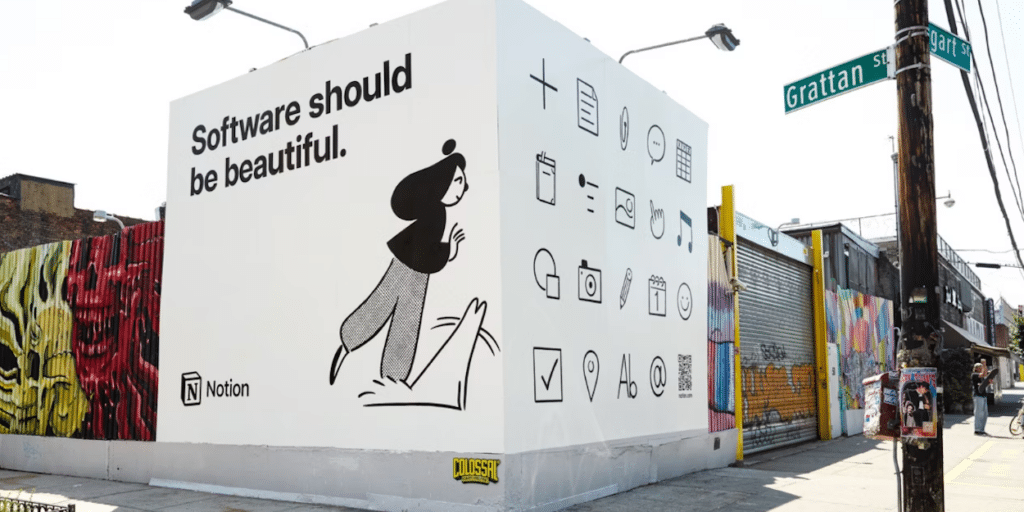
4 advantages of OOH compared to other campaigns
While billboards and similar OOH advertising may seem dated compared to digital marketing and other strategies, they have significant advantages.
- Better targeting: There was a time when digital ads and similar channels allowed for more fine-tuned targeting. But between new privacy laws and increased scrutiny for social media advertising, marketers are becoming more limited. No such limits exist with OOH advertising, and you can use publicly available data to pick the perfect neighborhood for your campaign.
- Better ROI: This may not be true when compared to all channels, but OOH advertising is generally a better return on investment. This is especially the case if you run these campaigns for longer.
- High recall: Social media ads and similar digital advertising campaigns are quickly skipped over as your prospects scroll through their feeds. They’re usually not memorable unless they’re extremely creative. A billboard usually has a better chance of being remembered.
- High reach: In the right position, your OOH ads can be seen by thousands of people a day, reaching a huge variety of audiences. There aren’t many digital platforms that can replicate this.
Don’t forget DOOH campaigns
While OOH advertising might make you think of billboards, posters, and similar advertising, they aren’t the only types of media you can use. DOOH — or digital out-of-home advertising — refers to any kind of OOH advertising that uses digital mediums. That can be a screen on a gas pump, a digital billboard, or animated advertisements in elevators.
Why location intelligence is essential for OOH advertising
Location intelligence — which is any kind of data that has some kind of geographic quality to it — plays a crucial role in optimizing your OOH advertising campaigns. Unlike other advertising channels, your ideal customer’s characteristics have to be tied to physical locations for OOH advertising. You need to know where your prospects live, where they work, and where they like to travel.
4 ways you can optimize your OOH campaigns with location intelligence
Use market research to accurately estimate spend
No matter what kind of OOH advertising you plan to use, market research is the best way to ensure you’re getting the best ROI you can. Location intelligence tools give you access to demographic data you can use to find the best neighborhoods for your campaign.
Use market research to accurately estimate spend
Point of interest (or POI) data is used to pinpoint noteworthy locations on a map. They can be anything from restaurants to bus stops and even tourist destinations. POIs can help you pinpoint spots for your OOH campaigns that are close to where your ideal customers are.
Check foot traffic data to target the right areas
Your OOH campaigns aren’t going to do much good if they’re targeting areas with little to no foot traffic. Of course, the amount you have to spend to place your ads in a particular area will increase as foot traffic increases, meaning location intelligence is a great way to ensure you’re getting the best bang for your buck.
Use drive time maps to optimize roving marketing campaigns
Roving marketing campaigns are an example of OOH advertising that uses signage on vehicles to bring your brand to more people. With a location intelligence tool, you can map out the ideal trajectory for your vehicles to maximize exposure.
How to use location intelligence for OOH campaigns
You’ve seen the what and the why, now let’s dive into the how.
3 elements you need from location intelligence
Not all location intelligence tools are made equal. Before you start, make sure your tool of choice can do these three things.
Drive times and territory mapping
Territory mapping can give you a sense of your campaign’s exposure, while drive time maps can tell you how far a roving campaign can go. Make sure your tool can handle both of these.
Pull up demographics
Demographic information, like gender, ethnicity, and income, can help you find and target your ideal customer. With the right location intelligence tool, you can pull up this information in a territory, which will help you select the right spot for your campaign.
Identify points of interest
As mentioned above, points of interest are absolutely crucial for OOH campaigns, so a location intelligence tool needs some way to display these on a map for you.
Quick Tutorial: Prepare your OOH advertising campaign with Smappen
Smappen is a location intelligence tool that lets you create drive time maps, access demographic information, identify points of interest, and a whole lot more. Here’s how quickly you can pair location intelligence with your OOH campaign.
Step 1: Map your territories (with drive times)
Start with an address and create a drive time map with just a few clicks. Done manually, this would take a lot more time!
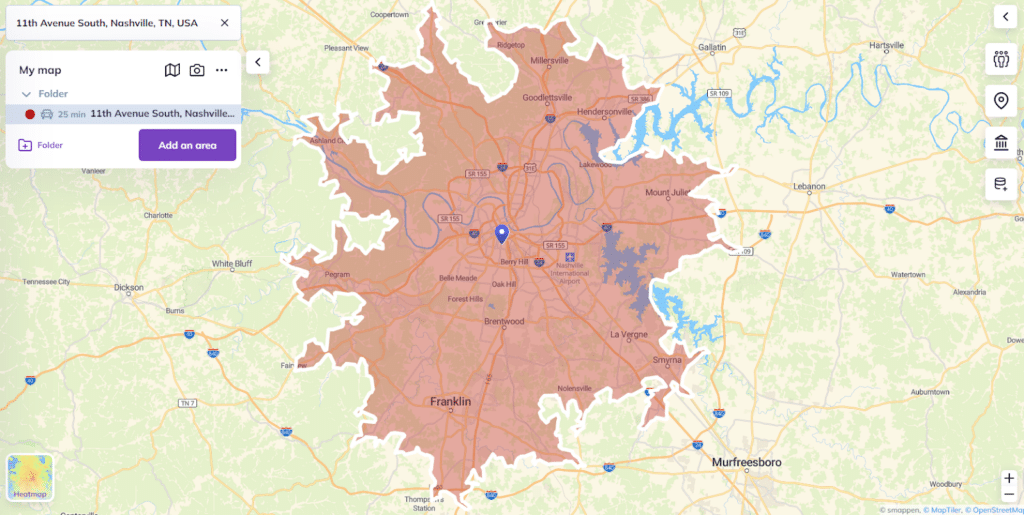
Step 2: Analyze your target to adapt your messaging
Open up Smappen’s Population panel and you can see what kind of jobs people in your area have, their housing situation, and a lot more. If your campaign involves mailing or posting flyers, you could even pull the exact number of households in that area to estimate the number you’d have to print.
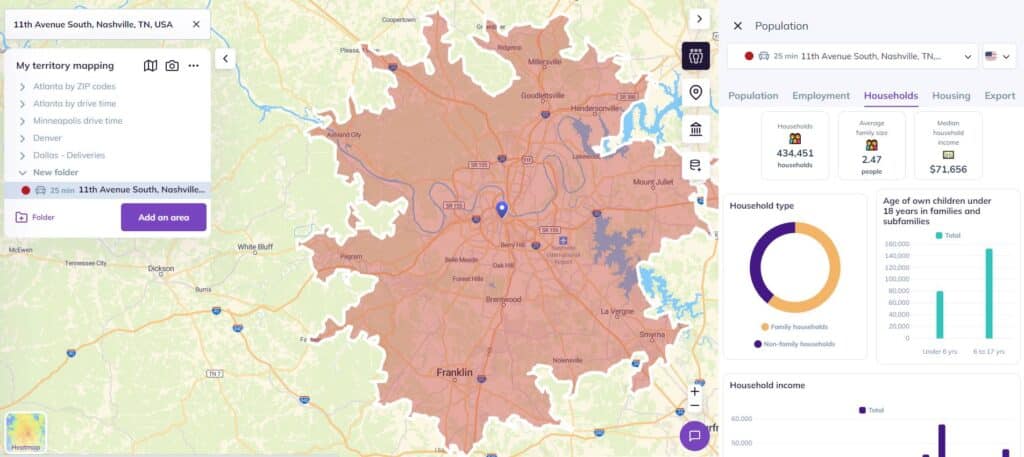
You can also use the heatmap feature. By displaying density levels, you will be able to quickly spot where your target audience is most concentrated.
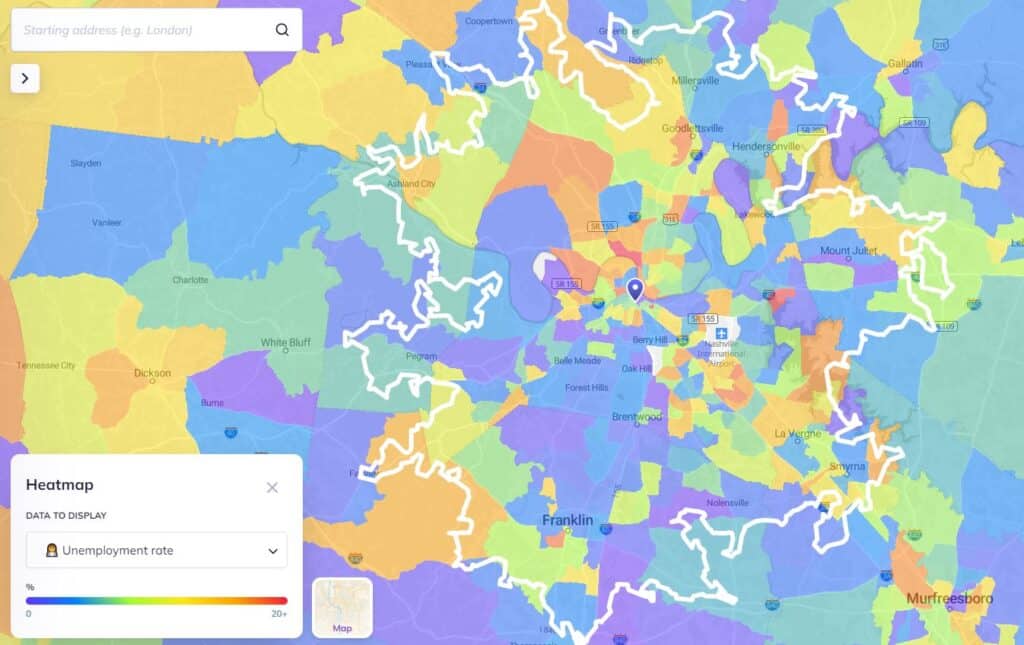
Step 3: Spot competitors to know their positioning and make your ads stand out
With Smappen’s Point of Interest panel, you can look up the competition to get an idea of the population they’re targeting. Pair that with some on-the-ground research and you’ll get a good sense of what their strategy is.
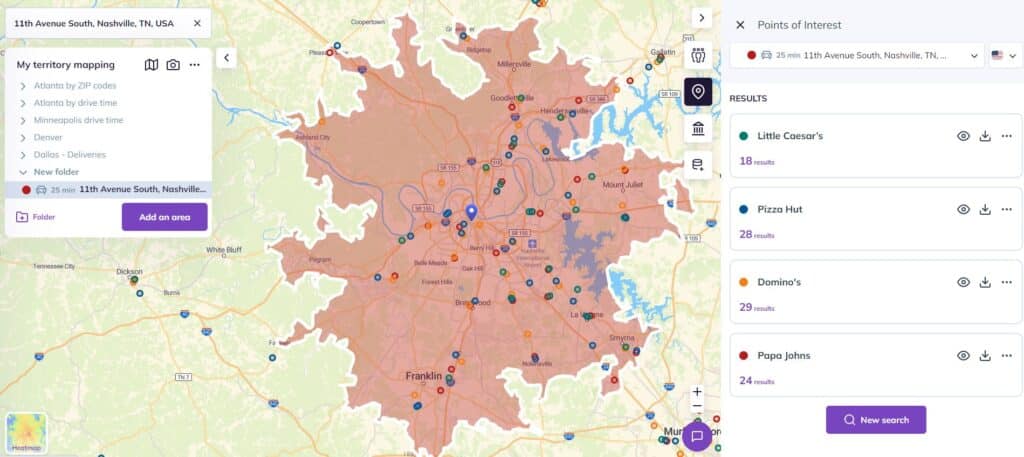
Step 4: Extract zip codes from your areas
Whether it’s for DOOH campaigns or even just to see where you can send flyers, Smappen allows you to extract the zip codes in your areas for use with other tools.
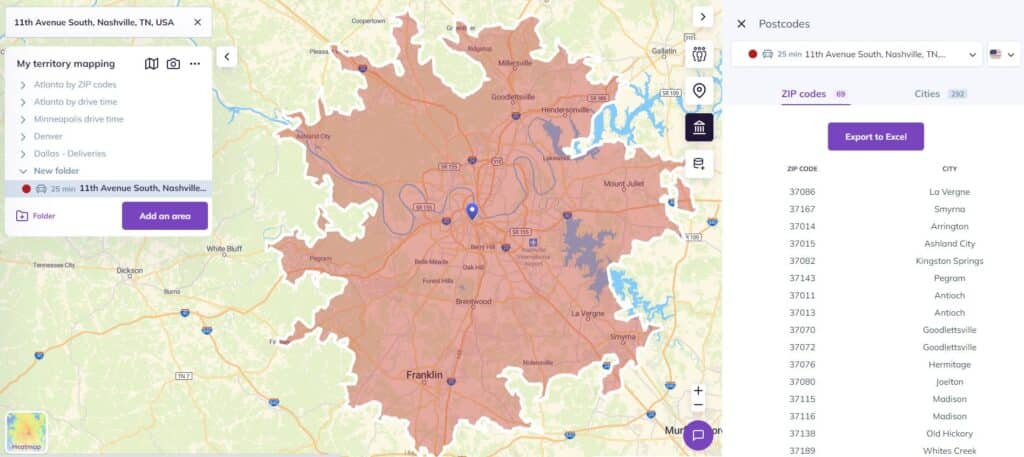
How Insulation Commandos uses Smappen for OOH advertising
Insulation Commandos is a home services company that specializes in domestic insulation, whether that’s overhauling older buildings or fixing specific issues in newer ones. The organization uses various advertising methods — like OOH advertising — to attract homeowners of a certain income level, which means they need location intelligence to properly target their campaigns.
Dustin Ingle, the CEO and Director of Franchise Development at Insulation Commandos, uses Smappen for market research and location intelligence.
“Smappen is very user-friendly mapping software that checks all the boxes for franchise development, where you’re building and managing territories. Its built-in data means you can also leverage it in marketing.”
Dustin trusts Smappen to provide his organization with the data it needs to ensure every marketing dollar is spent as efficiently as possible.
Find out how Smappen helps Insulation Commandos get more out of its marketing efforts.
Get Smappen and see it for yourself
Need a better way to map your delivery areas? Try Smappen for free.

